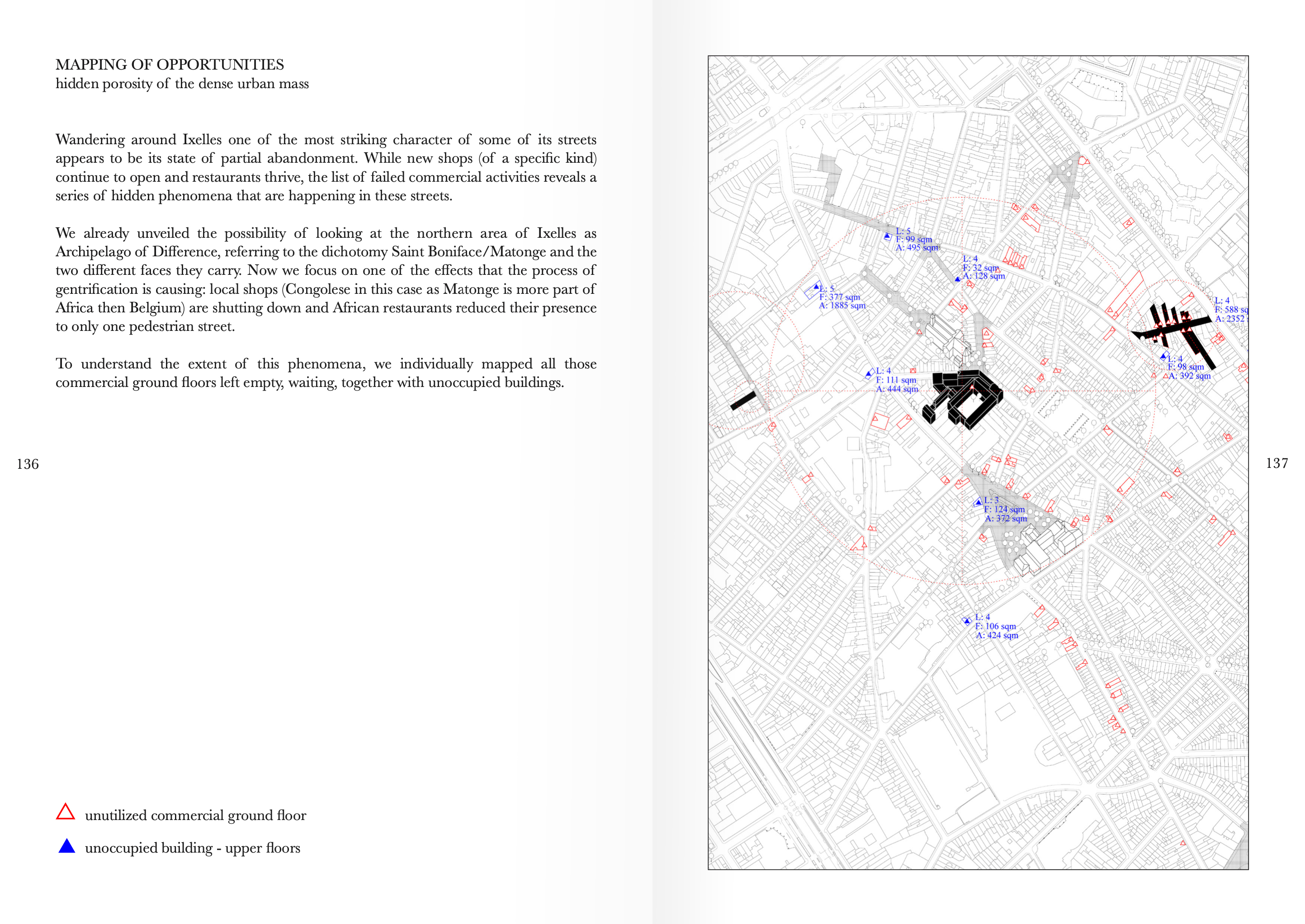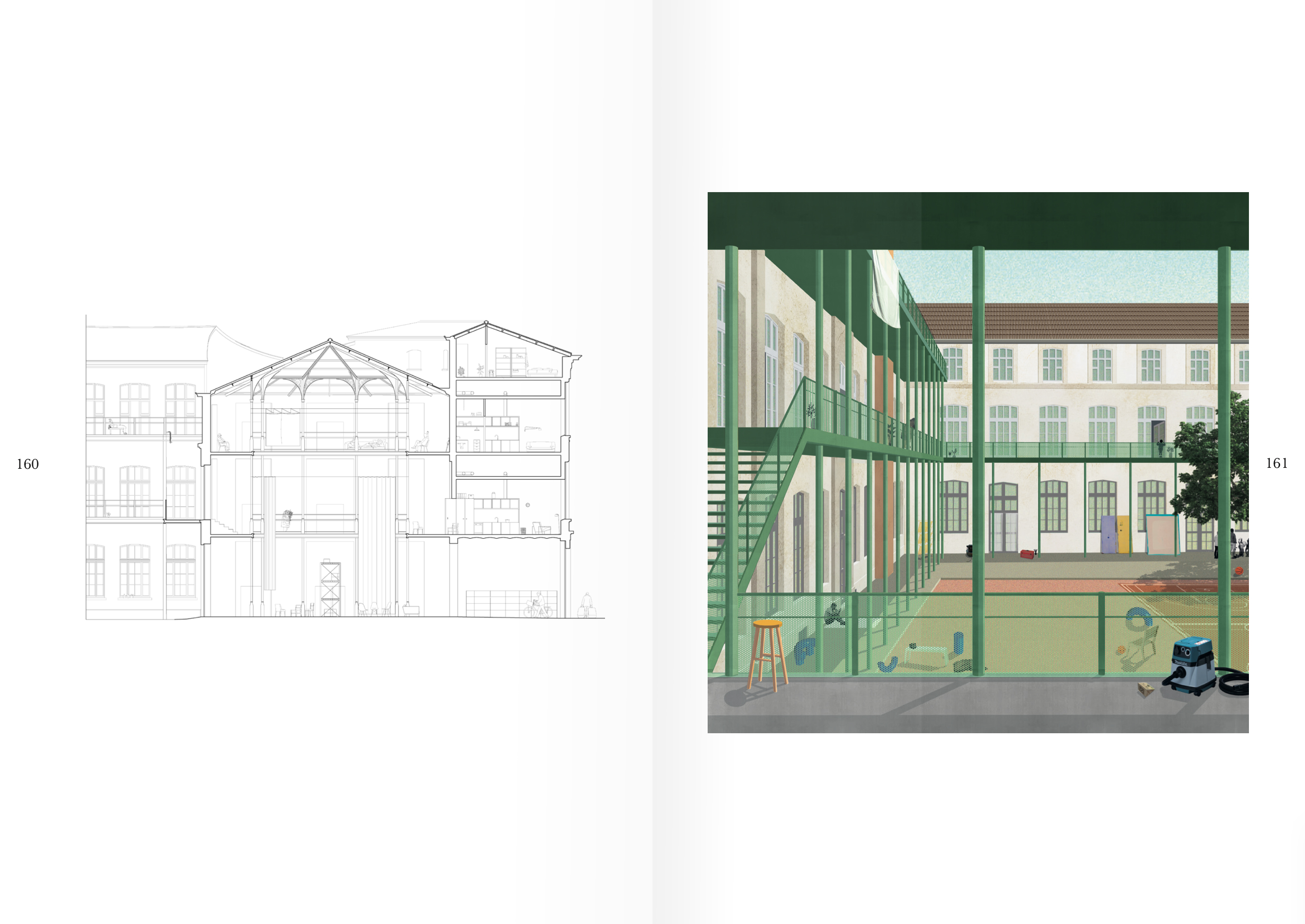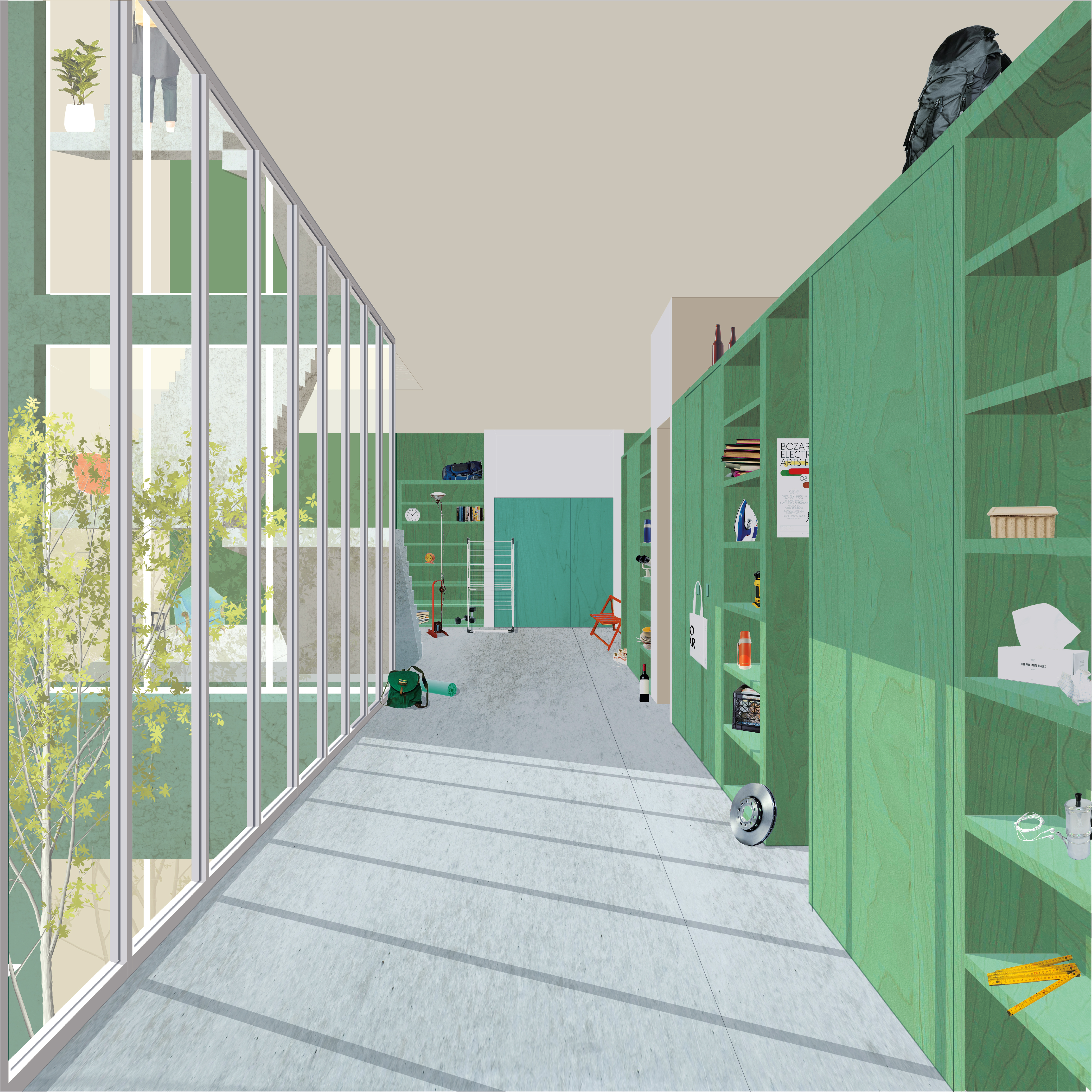
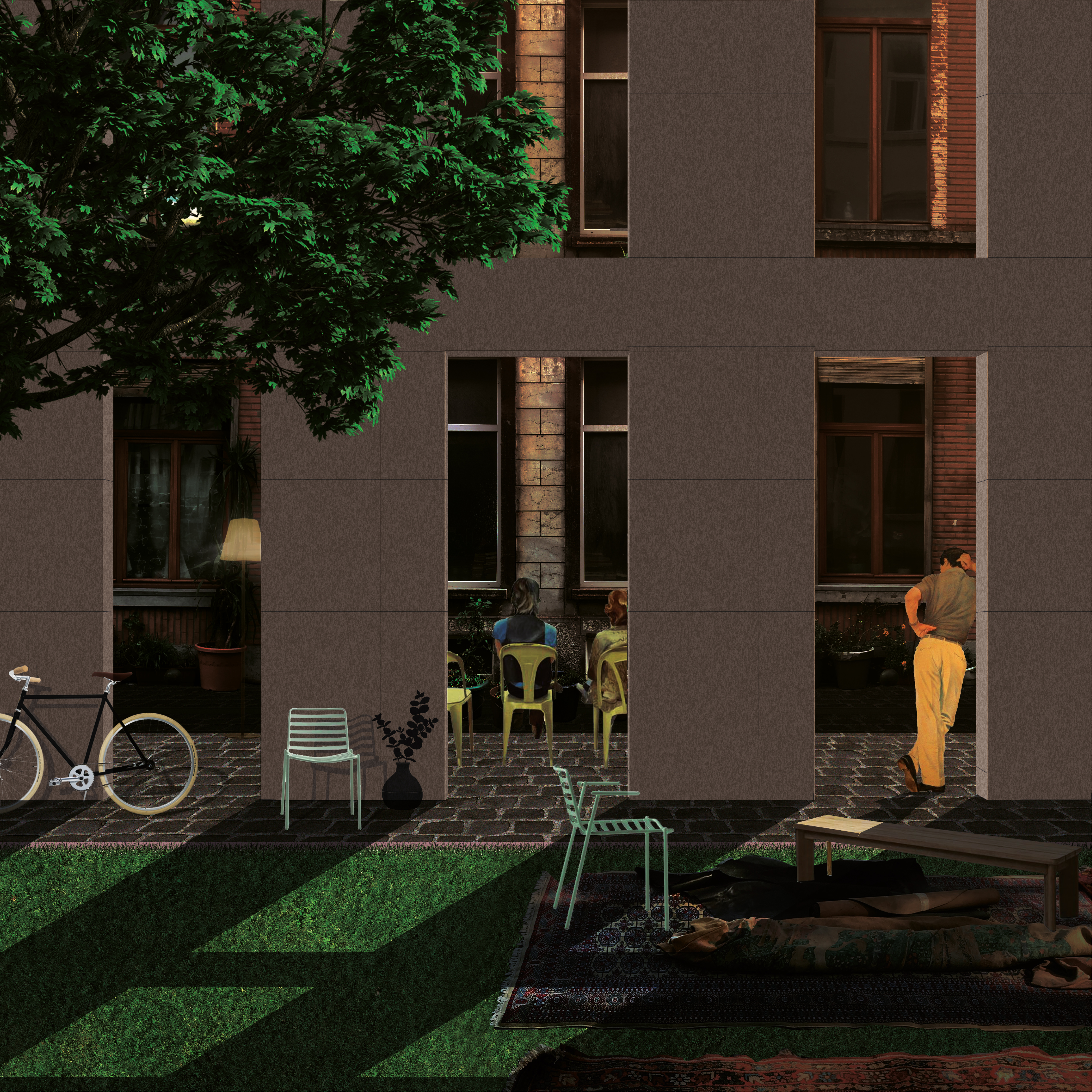
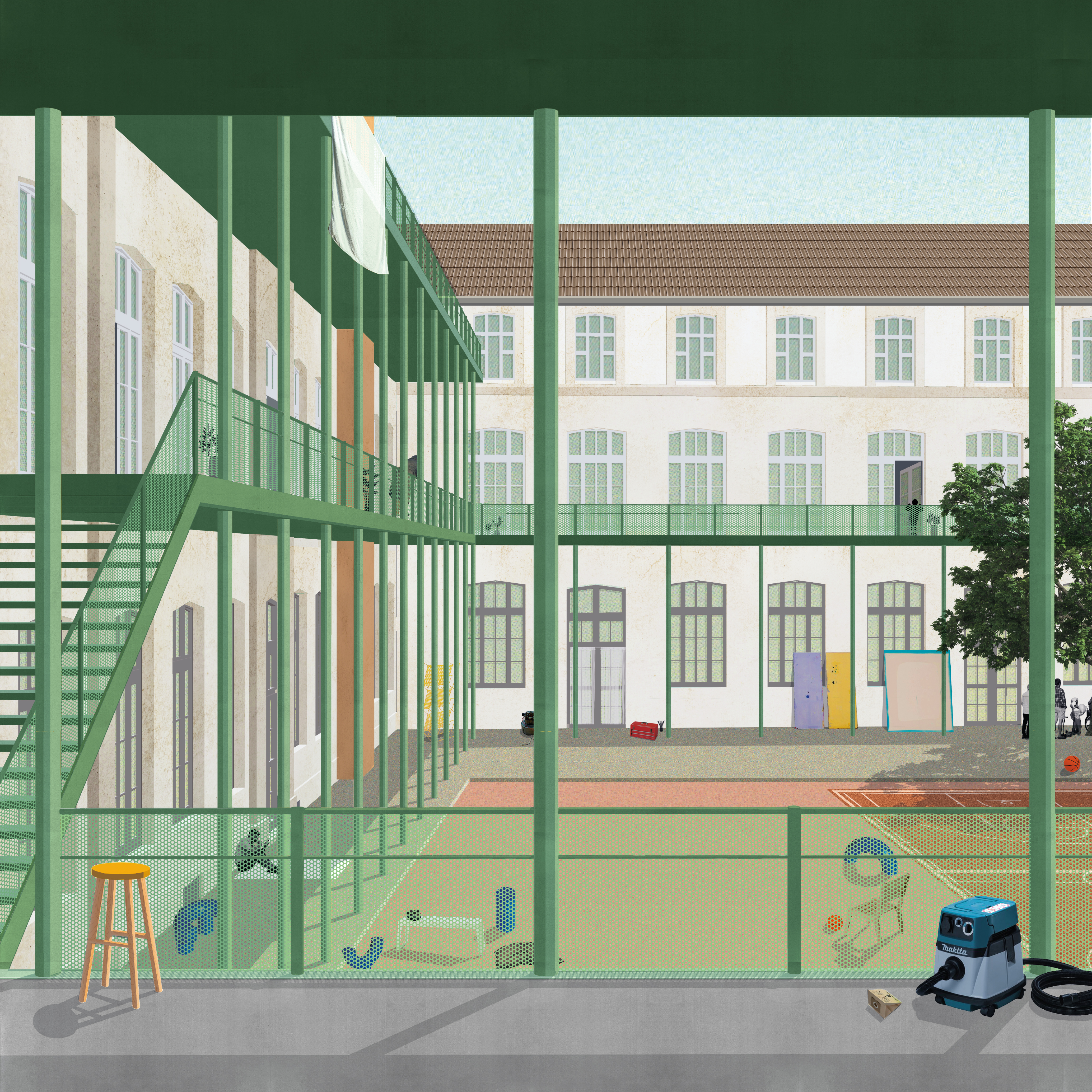

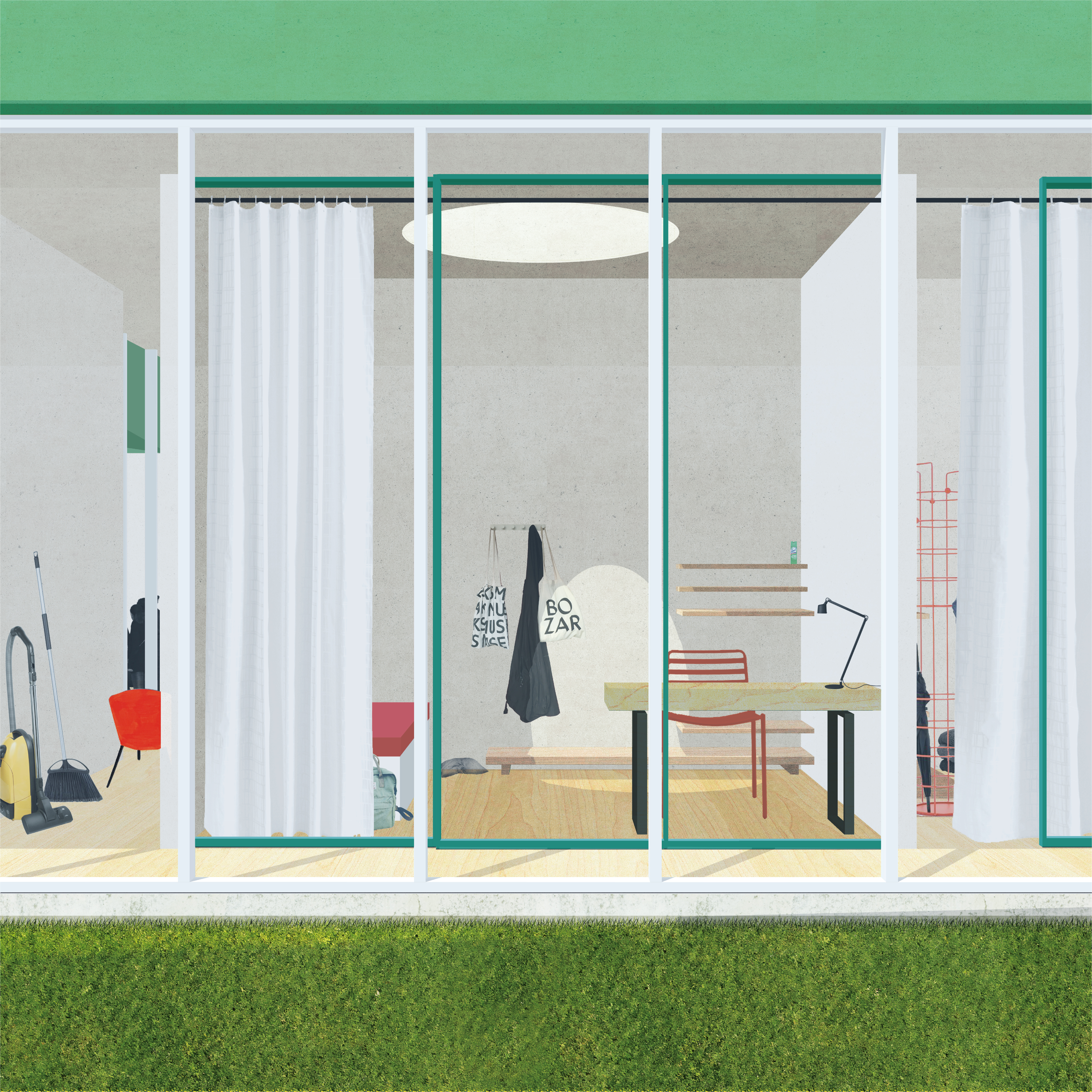
The Wandering Ape
For the first time after centuries, a part of the new generation is challenging the consolidated sedentary living habit that characterizes the culture in which they live - but not see themselves as part of; for the first time after centuries, one of the essential instincts of the human species is being rediscovered and pandered. Movement went back to being a fundamental characteristic of everyone’s life, a dominant element of this millennium’s anthropological and social spheres. Cities are required to expand and change their physiognomy to meet the set of needs introduced by the massive presence of nomadic individuals, of thousands of temporary inhabitants living between cities. This new scattered tribe abandons the concept of house as permanent place of existence and project itself towards ever-changing environments. Giving for granted that the contemporary nomad exists, our aim is to study, understand, interpret and eventually facilitate the patterns of behaviour, the sense of domesticity and the social practices that characterize their living style. Mankind has always tried to bend space to follow its habits. Our aim is focusing on the ability of the human species to adapt its own dwelling practices to a predetermined unwelcoming context. Thus we are interested in the possibility of a basic and serial space which is then infused of meaning thanks to the performance of domestic and ordinary rituals; following this thought, the definition of the house changes: it is no longer a predetermined space that must be circumscribable, but the whole set of actions and set of rituals that are meticulously performed in any space that consequently evolves from space to place. In this sense we can say that contemporary living, partly abandoning physical places, manifests itself as a practice that is more situational that positional. We don’t inhabit places but situations. Elaborating on this reinterpretation of the very concept of home and domestic, we started both our analysis and design processes from the space that better echoes the true identity of our actors: the room. It is seen as an individual cell that acts like a second skin for its inhabitant and as container of sacred objects, domestic practices and daily rituals. These situations and archipelago of tools and icons defines the quality of the space that contain them. Escaping the individual space, we define a support system through the introduction of the second necessary evolutive tool for the nomadic lifestyle: the concept of communal private property. In this context, the city of Brussels acts as playground for nomads and ideal territory for the experimentation of possible scenarios. It is presented as a multi-faced urban and social system, at the same time City of Passage, Archipelago of Differences and Theatre of Opportunities. Within this urban and socialscape we identified the municipality of Ixelles as ideal core in the context of this discussion on nomadism and temporary living. In this municipality, the failed integration of the temporary population with the local and sedentary one is precluding the possibility of creating a transcultural scenario leading to a theatre of differences and closed islands. This set of inputs made us develop a curiosity for this City of Passage and a will to challenge the current trends through the design of alternative domestic and property models. Acknowledging the presence of the nomadic individual - who likes to pass undetected but causes greater side effects than expected - our aim is to define intervention strategies that are not directly driven by real estate market’s rules but rethink the delicate relationship between both the form and concept of the house and the practices of the nomadic individual, and between the continuous flux of ‘visitors’ and the neighbourhoods that host them. The aim is introducing in the consolidated residential context of Ixelles a series of condensers for all those people that stand between the definition of long term visitors and short term resident. Introducing these nomad condensers means infusing the already existing complex local structure with a new and rather experimental community of impermanent users. For this reason, the main focus of these additions has been on threshold spaces. Thus, these interventions - unlike the dwelling blocks typologies proposed and built in the Saint Boniface area during the last years - open to the surrounding urban sphere, treating it as integral and fundamental part of the primary domestic system. Everything started from our personal need to continuously change location and go further, learn from newness and evolve thanks to adaptation. The situations we found ourselves in brought us the possibility to collect findings and reflections that then needed to be structured and theorised. This lead us to ask ourselves some fundamental questions: in a life marked by periodical transfers and perpetual changes of scenario, which are the characters that remain steady when we try to define the concept of domestic? how has the sense of belonging to places, social groups and cultures changed? which are the given tools able to facilitate the inevitable adaptation process to whom we are periodically subjected? For us, socially curious nomad individuals, this is a personal issue. For us this is a conversation that has to be addressed with other nomadic individuals, municipalities, state leaders, policy makers and the consolidated sedentary community we interact with. For us, wandering apes currently without an officially recognized identity, the definition of the traits of our new species becomes the possibility of providing everyone who consider themselves part of this tribe that moves together but individually, the opportunity to declare their presence in every city, even if it is only for a short period of time.
Team: Celeste Tellarini + Michele Tavola
Stage: Self initiated project and research
Year: 2020
![]()
![]()
![]()
![]()
![]()
![]()
![]()
![]()
![]()
![]()
![]()
![]()
Stage: Self initiated project and research
Year: 2020







